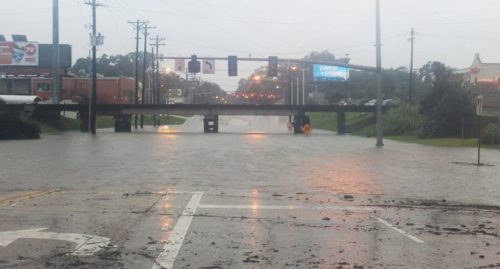Community Response To The Floods

The flooding has been devastating to many in the Baton Rouge community.
We’re well aware that the recent floods have devastated the surrounding communities of Baton Rouge and we want you all to know that we care and that we’re here for you. This has been a trying time for our community and we’ve already had a rough year in some regards.
So far, nearly 40,000 homes have been affected by the flooding, and over 20,000 people have been rescued. We’d like to extend our gratitude to rescue professionals and neighbors alike who’ve been taking care of our community.
All across the country, folks have seen the video of people being rescued from a sinking car as it’s going down in the flood waters. It’s the neighbors and people right next door that have each other’s backs and we want to act as a neighbor and not just a business. It’s not always easy to predict or know what the needs are that we can fill specifically, but as a mental health facility we’re able to help link people with local resources for moving forward.
If you’re able to help, here’s a few things to consider:
- Track your volunteer hours. The more hours people volunteer, the more opportunity for FEMA aid that can be granted.
- Find local churches and well-organized outreach groups and volunteer. Ask what they need the most rather than just donating things that they may not be able to use or have space to store.
- If you know someone personally who’s been affected or displaced from their house, ask what their needs are and make an offer of ways you can help.
- Look out for potential safety concerns whether it’s infrastructure, chemicals, sewage, etc. Contact the appropriate authorities if you notice anything.
If you’ve been affected here’s what to look out for:
- Remember, it’s a gradual process. Drink clean water. Eat well. Pace yourself.
- Keep an eye on structural issues in your home, chemical spills, and frayed wires. If appliances have gotten wet, turn off the power at the main circuit breaker, unplug the appliances, and let them dry out.
- Depression and anxiety can creep in. Look out for disaster-related stress which can lead to difficulty communicating thoughts, increased frustration, guilt, and social anxieties. Be sure to write things down that stress you out. Prioritize and tackle things one at a time.
- PTSD can also show up months afterwards. It could be a variety of things that could trigger it.
- Look for local organizations to bring household items like toiletries. Many local churches still in operation around your neighborhood may have boxes of donated goods that can help, and oftentimes, those donation boxes go unused. Save your insurance money for bigger things that will help your quality of life down the road.
More than anything else, we just want you to know that we care as members of the community and for you to know that we’re right there with you. If there’s anything that we can do to help, our main mission as a company is to make things easier and better for you so that you can get to where you want to be. If you’re having difficulties with losses, depression, anxiety about the future, we’re here and we’d like to be part of your winning team.
Here’s a link of more information if you or someone you know has been affected.
